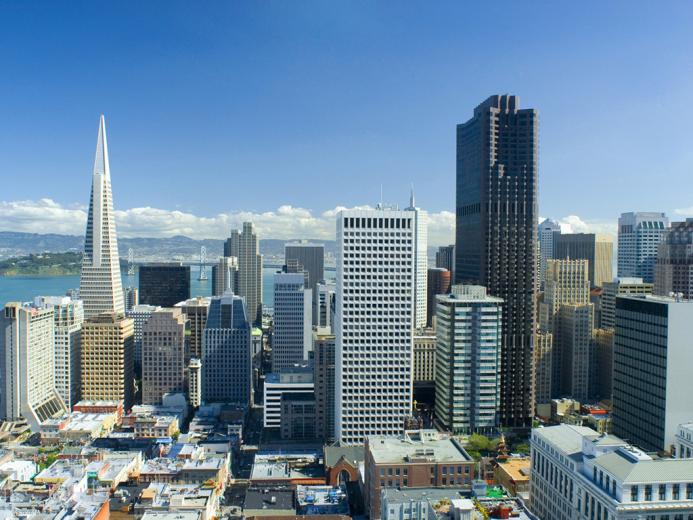1 11
1 11
San Francisco continues to claim the top two spot on the CMI due to its popularity with technology firms. San Francisco boasts a dynamic innovation ecosystem and highly educated, skilled and compensated population propelling its metro economy, according to the report.
Silicon Valley, a Bay Area market renowned for its tech dominance, is fortified by a robust university infrastructure. This market ranks very high in new patents and environmental health, further boosting its long-term positioning.
New York, which came in third on the CMI, is a top expansion market for Bay Area tech giants, which leased 3.4 million sq. ft. of office space in the Big Apple over the last five years. This market added the largest amount of people in tech occupations between 2011 and 2016 and now has the most U.S. workers employed in tech occupations. Besides its concentration of the world’s biggest companies, New York is second only to San Francisco for the highest number of tech start-ups among cities included in the CMI.
Boston has ensured its status as a global leader in research and technology and attracted Bay Area tech firms, which leased 1.8 million sq. ft. of office space in the market since 2012. The city boasts a unique concentration of some of the world’s leading research institutions and human capital. With leading rankings for education infrastructure and impact, the city is among the most prolific sources of patent applications globally.
With Los Angeles’ world-class university system underpinning substantial growth in technology talent, the metro area hosts a massive number of computer and math-related occupations. The growing pool of STEM (science, technology, engineering and mathematics) talent has translated into significant innovation potential, and the city ranks in the top five U.S. markets for international patent applications.
San Diego, with its high quality of life, world-class university and high level of STEM talent, punches above its weight in terms of tech firm presence and new patents issued. Several R&D clusters help to drive the San Diego economy, while this market also scores well in environmental quality.
Eighth on the CMI list is Chicago. This distribution, transportation and finance hub for Midwestern and Central U.S. has attracted a number of Bay Area tech firms over the last five years, which occupy 1.5 million sq. ft. of office space in the Windy City. Chicago boasts a highly diversified industry base and is home to a nascent, but quickly growing, high-tech cluster in its central business district (CBD). A notable foundation for its future success can be attributed to the considerable strength of the local universities, which help feed the city’s very large and growing educated labor pool.
Seattle is also a magnet for expanding Bay Area tech firms, which have leased 3.5 million sq. ft. of office space here, according to the CBRE’s MarketFlash report. Significant demand from growing tech companies is continuing to boost economic momentum and real estate investment activity. With more than 60 percent of the office space in the city currently being sought by tech tenants, conditions bode well for continued strong performance of Seattle’s office sector. Tech tenants’ ongoing need for additional space has driven up office rents and has placed a premium on centrally located offices with high-end amenities and transit accessibility.
Austin, Texas, a city with a highly educated, quickly expanding labor force, ranked 10th on the CMI. Relative to its size, the market has a very large concentration of high-tech companies, including an established base of tech manufacturing. The local talent pool is attracting new information technology firms, and this trend is anticipated to continue due to in-migration trends, relative affordability and high quality of life.
Denver, with high quality universities, a very diverse economic base and high marks for environmental quality, came in 11th on the CMI. A skilled workforce and growing and diversified high-tech sector have boosted the economy’s potential and attracted Bay Area tech giants, which leased nearly 1 million sq. ft. of office space in the city since 2012. A growing talent pool—attracted by the region’s concentration of well-paying industries and an active, outdoors lifestyle—is expected to maintain momentum for the local economy going forward.
While Washington D.C.’s economy is to a large extent driven by the federal government, it is experiencing considerable diversification. With information technology burgeoning into a major force in the local economy, the region is attracting Bay Area tech firms, which have already taken 1.2 million sq. ft. of office space here, with further growth expected. The market also boasts multiple education institutions, a highly educated and high-income labor force and an extensive transit system.

